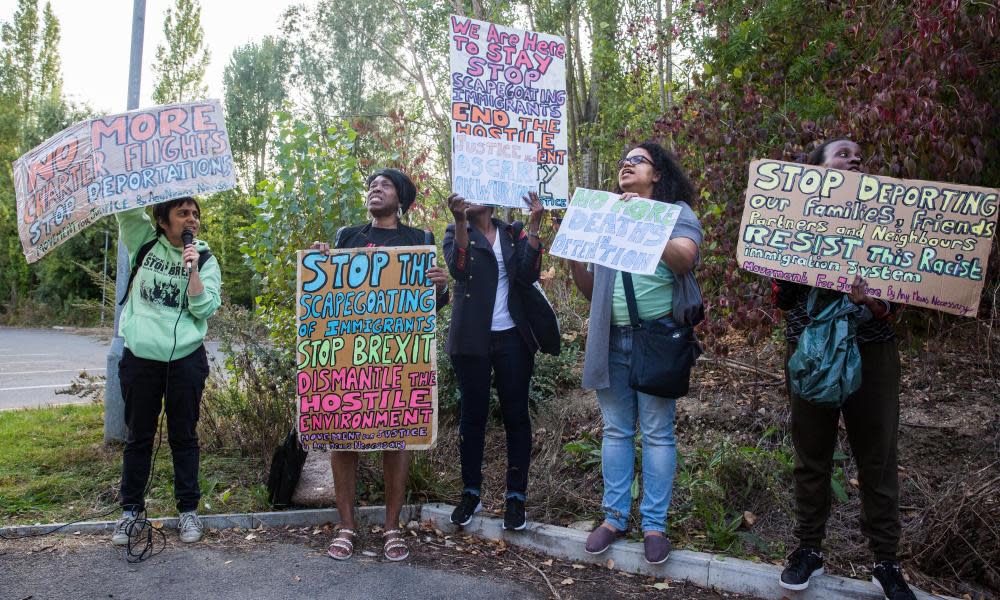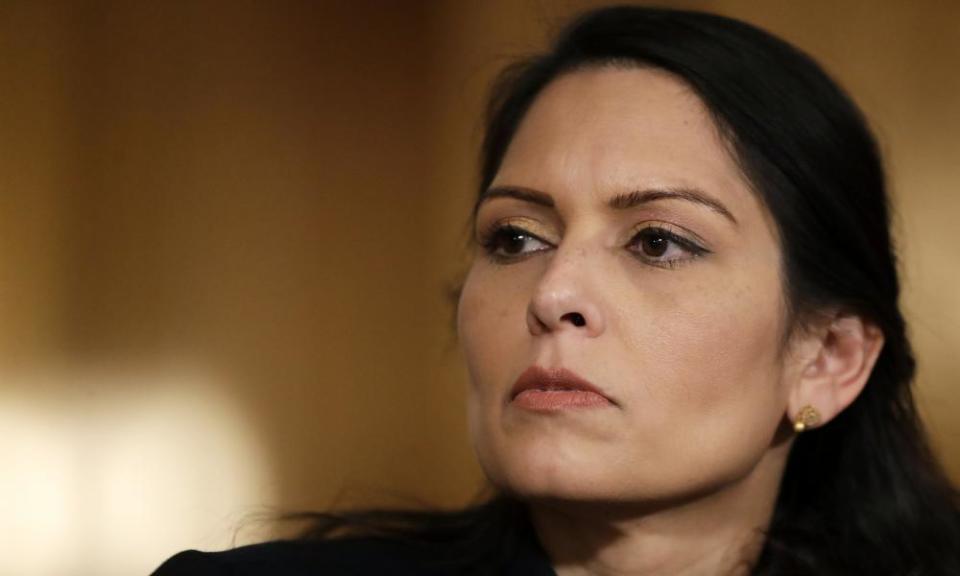Witnesses to deaths in detention ‘deliberately’ deported from the UK

Scores of people who could be key witnesses to deaths in detention may have been “deliberately” deported before they could give evidence, it has been claimed. And it has also emerged that the home secretary, Priti Patel, failed to address concerns from a coroner last year that the actions of her department could have undermined police investigations.
Patel was informed last August of concerns from a coroner that Home Office officials possibly “chose to ignore the fact” that witnesses to the contentious death of a black detainee were due to give evidence before attempting to remove them from the UK.
Despite the coroner asking Patel to intervene to curb a practice that was compromising police investigations into deaths in immigration detention centres, her response did not address the issue.
Irene Nembhard of London law firm Birnberg Peirce, who was involved in a case where the Home Office attempted to deport key witnesses, said: “These are black detainees and they are not being seen as valuable witnesses. This failure indicates institutional racism but also a failure to see people as people.”
On Wednesday, a court ruling held Patel accountable for failures in ensuring that deaths in immigration detention centres are properly investigated. The ruling concerns two friends from Nigeria – Ahmed Lawal and Oscar Lucky Okwurime – who were in Harmondsworth detention centre when Okwurime was found dead in his cell in September 2019.
Although Lawal was a key witness, the Home Office attempted to deport him five days after his friend’s death – before he could provide any evidence for the inquest, which subsequently concluded Okwurime had died because of poor medical care.
Jamie Bell of Duncan Lewis solicitors, representing Lawal, told the Observer that they were in contact with “multiple” witnesses who had expressed interest in providing evidence but who abruptly disappeared.
“We just don’t know what happened to them, but the Home Office did not identify any potential witnesses after the death,” he said.
Ultimately, Bell was aware of around 20 people in the corridor of the centre where Okwurime died, but who went missing.
This included the man in the cell next door who also vanished, hampering attempts to ascertain if Okwurime shouted before he died or if the cell’s alarm system was working.
“He should have been a really vital witness but he wasn’t approached by the Home Office and therefore wasn’t able to speak to the police or the coroner,” said Bell.
He added that many witnesses may have been deported before they could share testimony with the authorities, but it was impossible to quantify because individuals were not identified to a coroner in the first place.
“The Home Office had carte blanche to remove as many people as possible. In the Okwurime case, the coroner may have wanted to run a wider inquiry into healthcare, and that would have meant lots of potential witnesses,” said Lawal’s lawyer.
Deborah Coles, director of the charity Inquest, said: “This was a damning judgment on deliberate attempts to frustrate and undermine effective investigations and proper scrutiny.”
The coroner’s letter to Patel, dated 27 August 2020, warns that following the death of Carlington Spencer inside Lincolnshire’s Morton Hall immigration centre, the Home Office appeared to “not appreciate” the importance of detainee witnesses.
The coroner, Timothy Brennand, also questioned why “no formal, declared statements were obtained timeously from these witnesses” before attempts were made to deport them.
Brennand added: “Two detainees were on the point of being physically deported in circumstances where the Home Office either was not aware, or chose to ignore the fact that these detainees were important witnesses required to give evidence at a forthcoming inquest hearing.”
The inquest into the 2017 death of Spencer, 38, from Jamaica, identified myriad failings which possibly contributed to his death, including numerous missed opportunities by staff to sufficiently monitor him, and failure of medical staff to identify symptoms of stroke and take appropriate actions.
Meanwhile, the Home Office is accused of refusing to release details of any potential witnesses to a mysterious death in Morton Hall in February.
The charity Medical Justice wrote to the Home Office requesting details of any witnesses who had been recorded to assist in any investigation, along with details of the actual deceased.

According to the charity, the Home Office “fobbed them off” and told them not to expect any information before the end of this month.
It comes as a new report condemns Patel’s recent proposals to reform the asylum system, warning it will “deepen hostility to refugees” and could “formalise and embed a culture of disbelief” against them.
The report, by Catholic organisation the Jesuit Refugee Service UK, argues that a radically new “human-centred” approach to asylum is required.
Based on its own research with refugees who have spent years in the asylum system, it advocates the approach being recalibrated with protection enshrined at its heart.
Last month, Patel pledged to remove people who enter the UK illegally having travelled through a “safe country” – plans condemned by many as unworkable and incoherent.
The report states the system is “more concerned with refusing asylum claims and removing claimants than with ensuring that people in need of sanctuary are offered protection and a chance to rebuild their lives”.
Sarah Teather, director of JRS UK, said, “We need an asylum system rooted in a sense of shared humanity, not a barbaric rehash of the old culture of hostility. Reform of the asylum system is badly needed. This is not it.
“It is possible to make the asylum system work. But we have to be prepared to really listen to people who are asking for sanctuary. That begins with dropping our sense of suspicion and letting go of the false assumption that everyone in need is trying to steal something that is ‘ours’”.
The Home Office has been contacted for a comment.

 Yahoo News
Yahoo News 
